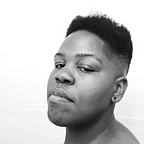HOW TO: Give meaningful feedback
Whether you know me digitally, professionally, or personally, you know that I’m a strengths-based leader, communicator, and friend. I never think you’re doing a “good job” or “nice work”. Even on your best day. You might have made it to the top of Everest, scored a top client, got your startup backed by a few VCs, birthed a child, or put out a fire (literally).
Let me explain why your actions deserve better feedback than “good job”. I was a teacher at a South Bronx charter school for kids in foster care for 3+ years. Pretend you’re me and one of your 1st graders rushes up to you and asks: “Ms. Williams, did I do a good job?”
You might think “Well, this drawing reflects what I’ve asked them to do and it looks nice”. Then, you might say: “Wow…nice work!”. The child’s face would light up with a bright smile. They’d run off to show their friends their work. They feel proud of themselves, their work is finished, and your relationship seems to be stronger. Good, right?
Here are the issues with this exchange:
- Telling the student “good job” didn’t give them any actionable information about what they are actually doing well and how they can improve.
- We’re all conditioned to look for and seek validation from experts. If this interaction becomes the norm, this child will get into the habit of doing work for the approval of others, instead of building an internal drive to learn, explore, and take risks.
- If the student has made positive strides, saying “good job” belittles their effort.
Here are a few alternative answers that might promote a better learning environment and teacher-student relationship:
- “Wow…I notice you shared the crayons with your friends and used more colors than you usually do.” (Possible lessons: Your work is better when you work collaboratively, take risks, and try to do better work each day.)
- “Wow! You seem proud about your work! What are you most proud of?” (Possible lessons: You should take pride in your work, know what your strengths are, and celebrate growth.)
- “It looks like crayons are your favorite tool to use during writing time! I think you’re ready for the challenge of markers…” (Possible lesson: It’s time to push yourself.)
- “I think your table should see this. Show this to your friends and let me know what they say about your work!” (Possible lesson: My peers are a resource.)
- “I’m most proud of the fact that you are taking the time to illustrate your stories. Before, you’d rush through your writing tasks without giving thought to each step.”
We’re all adults and our personal and professional relationships are different than the ones I had with my Kindergarten - 5th grade students. There’s still something we can learn. Let’s pretend you’ve climbed that mountain or gotten VC backing for your startup. You come up to me and are excited about what you’ve accomplished. Would you rather hear: “Wow, I’m so proud of you! I know that you’ve been training hard.” or “Good job!”. I’m not saying that there aren’t times when “good job” isn’t appropriate. I’m starting to find that if I have an ongoing relationship with someone, “good job” doesn’t cut it. We live in a world where people expect quick responses to emails, texts, and gchats. Now more than ever, I’m taking the time have meaningful exchanges that acknowledge and celebrate specific elements of success, help people take their goals to the next level, or get people back on the right track.
Photo credit: JJ and Special K
